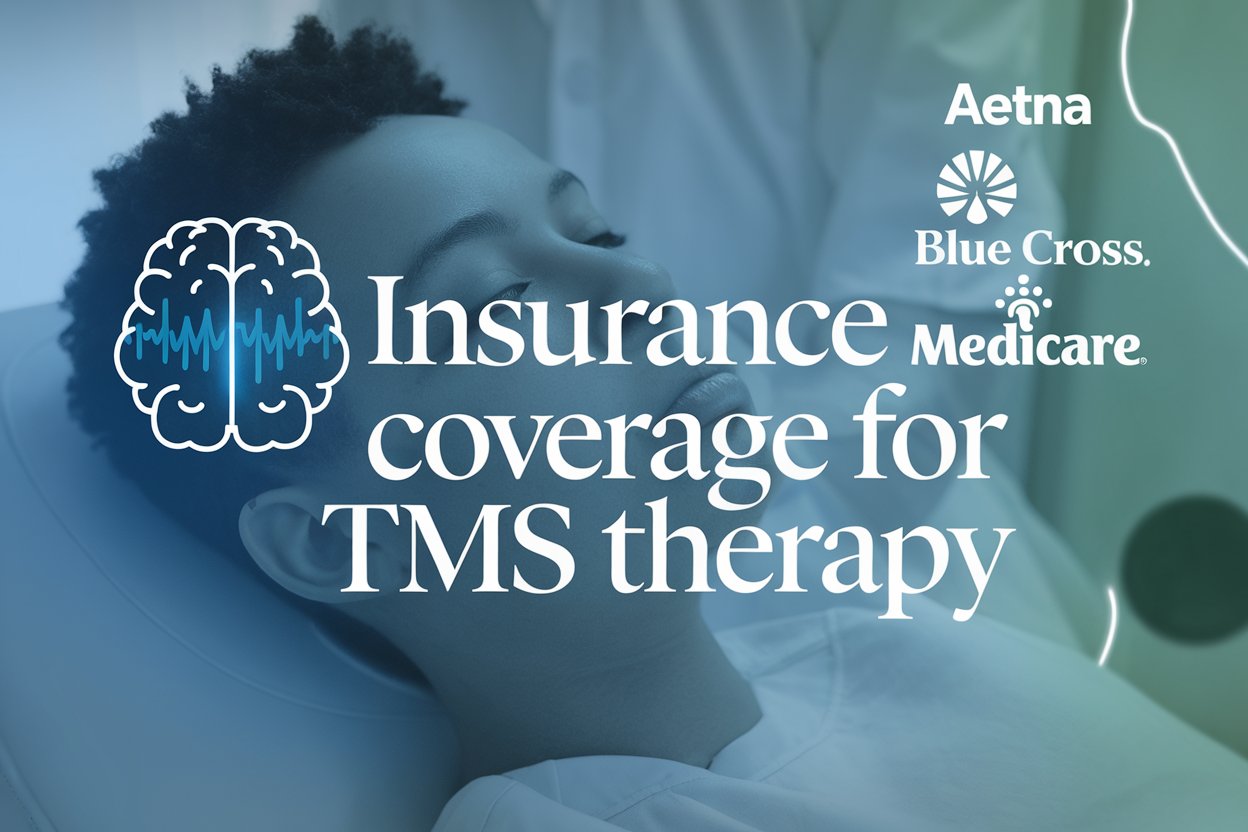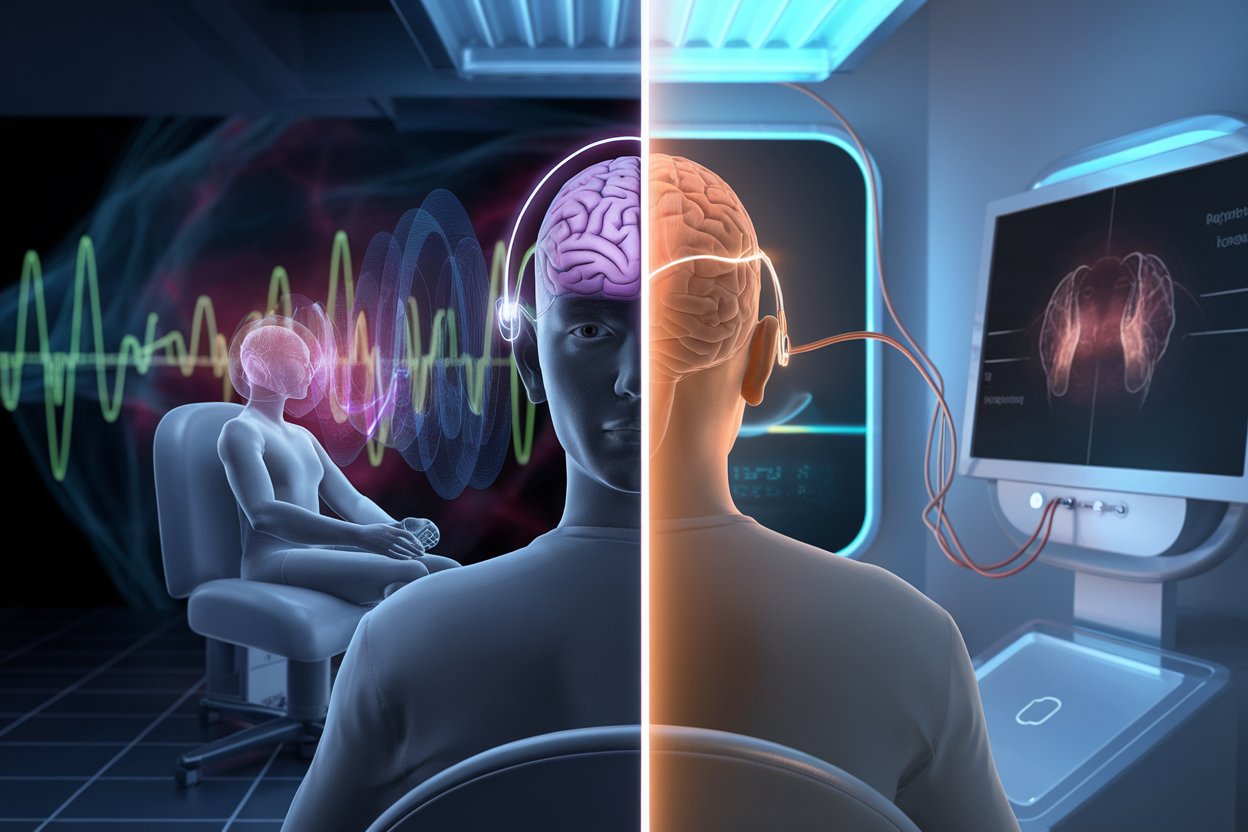Alcohol is like pouring water on a fire you’re trying to start when you’re doing TMS therapy, a new way to improve your brain’s mood and energy. We advise that you do not drink while doing TMS for the following reasons: Although TMS therapy can help the brain, alcohol makes it harder for the brain to respond to its positive effects.
Even though TMS therapy is supposed to wake up and refresh certain parts of your brain, drinking can make these efforts less effective, which makes the therapy less likely to work. You’re basically sending your brain mixed messages.
If you want to improve your mental health, clarity and focus are your best friends. Take a deeper look at TMS therapy and drinking alcohol.
The Science of Alcohol and Its Impact on TMS Therapy
Alcohol has a lot of different effects on the brain, and it can hurt TMS therapy in a number of ways, including:
- Neurotransmitter Interference: Neurotransmitters, like serotonin and dopamine, are important for controlling mood, but alcohol changes their levels in the brain. TMS therapy tries to get these levels back to normal, but alcohol can undo these changes, making it harder for brain cells to talk to each other.
- Brain Plasticity: Neuroplasticity is the brain’s ability to make new neural connections. One goal of TMS therapy is to improve neuroplasticity, which leads to better mental health. This process can be slowed down by drinking alcohol, which makes it harder for the brain to adapt and heal.
- Depressive Effects: Even though it might seem to make you feel better at first, alcohol slows down the central nervous system. Long-term use can make depression symptoms worse, which goes against the therapeutic goals of TMS therapy.
- Cognitive Function: It is possible for alcohol to affect your thinking and decision-making, which can make it harder to engage in treatment and use the coping skills you learn in therapy.
Learning about the science behind how alcohol affects the brain makes it even more important to go into TMS therapy with a clean mind and body. This will make sure that your recovery goes as smoothly and effectively as possible. Limiting or quitting drinking alcohol during treatment can help your brain heal, which makes TMS therapy work better.
The Ideal Way to Approach TMS Therapy Sessions
Going through TMS therapy is a step toward better mental health. To make sure you get the most out of each session, think of it as preparing for a great performance. The best way to do things is to get to
- Well-Rested: A good night’s sleep supports your brain’s readiness to respond to treatment, similar to how a well-charged battery functions best.
- Nourished: Eating a balanced meal beforehand can stabilize your mood and energy levels, giving your brain the fuel it needs to engage fully with the therapy.
- Hydrated: Proper hydration helps maintain optimal brain function, ensuring you’re in the best possible state for treatment.
- Mindfully Prepared: Arriving with a calm and open mind, perhaps through meditation or deep-breathing exercises, can enhance your receptivity to the treatment.
- Substance-Free: Avoiding alcohol and non-prescribed drugs before your session ensures that your brain’s neurochemistry is not adversely influenced, allowing for a clear pathway for TMS therapy to work effectively.
You’ll be in the best physical and mental shape possible to benefit from TMS therapy if you do these things before the session. This will create an environment where positive changes can take root.
Navigating TMS Therapy: Why Arriving Sober is Essential
You are making a promise to improve your mental health and overall well-being when you start transcranial magnetic stimulation (TMS) therapy. Mind and body must be in their best possible states for the process to work at its best during each session. If you go to treatment while drunk or with the effects of drinking, like a hangover, it can make TMS therapy much less effective and slow down your recovery. Here’s why being sober and clear-headed is more than just a suggestion—it’s a must for your treatment to work.
Risk of Adverse Effects with Alcohol Before TMS Sessions
Prior to starting TMS therapy, the brain needs to be in a state that is ready to accept the changes that will improve mental health. When alcohol is involved, especially near the start of treatment, it doesn’t just reverse the benefits of the therapy; it also greatly increases the risk of having bad effects, such as a seizure. There are a lot of serious reasons why you should not drink alcohol before TMS therapy.
FAQs About TMS Therapy and Drinking Alcohol
1. Can I drink alcohol during my TMS therapy treatment?
It’s best to skip the drinks while you’re in treatment. Keeping alcohol away helps make sure your therapy has the best chance to work well.
2. Will having a few drinks mess up my treatment?
Most doctors suggest limiting alcohol intake to no more than two drinks a week. Even a small amount can influence TMS therapy’s effectiveness.
3. What if I drank before I knew I’d be getting TMS therapy?
Talk to your doctor. They’re like a guide on your journey to feeling better and can help you figure out the next steps.
4. Can I drink alcohol after my TMS therapy is done?
Once your treatment is done, have a chat with your doctor about what’s best for you moving forward. They’ll help you make the best choice for your health.
Ready to Start Your Journey?
Thinking about TMS therapy but worried about how drinking alcohol might affect it? American TMS Clinics are here to help. Our team is like a group of guides ready to walk with you on your path to feeling better, with clear minds and hopeful hearts..
Contact American TMS Clinics in Phoenix today to learn more about how we can help you achieve your health goals, with or without alcohol in the picture. Let’s take the first step towards a brighter, healthier you together.





